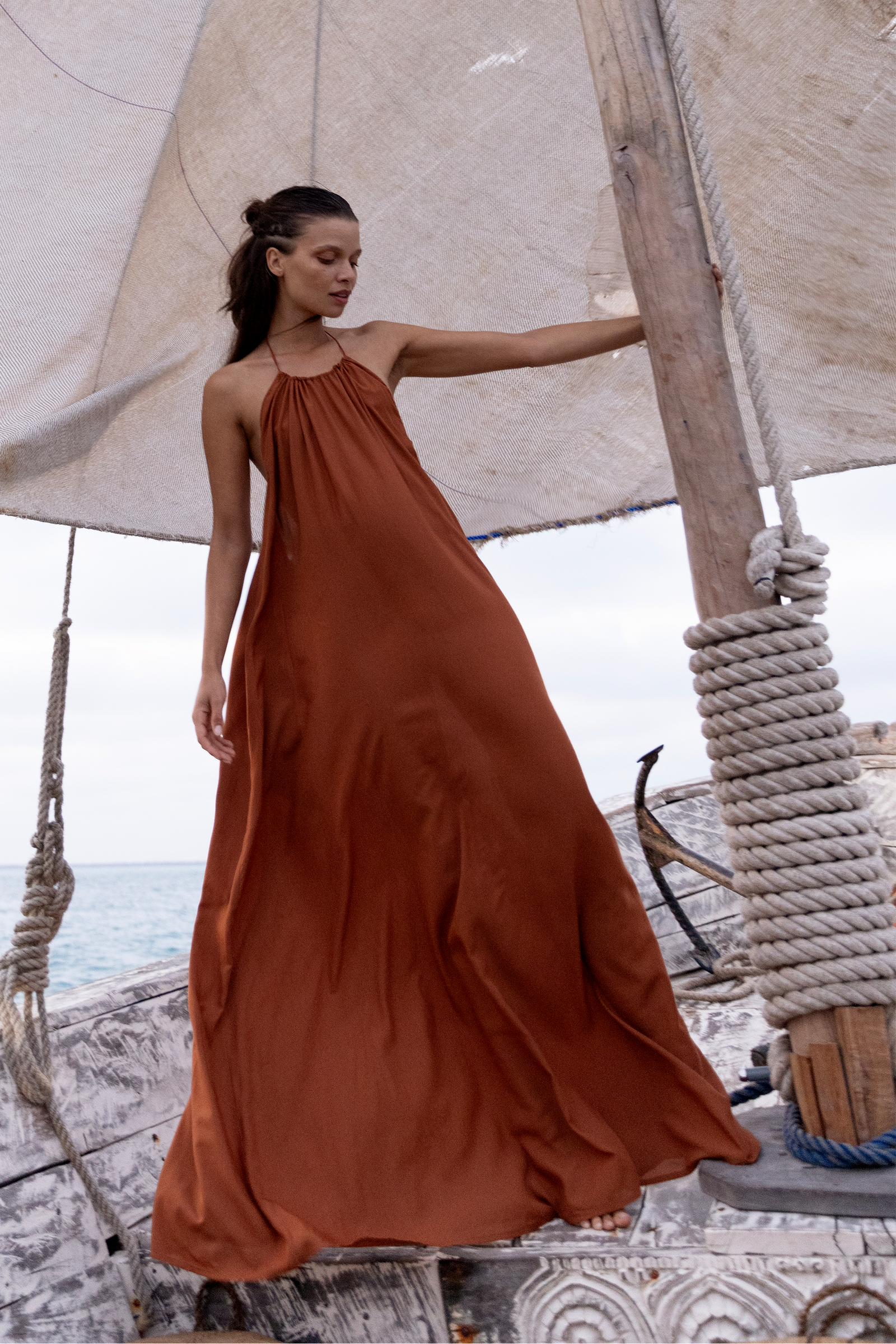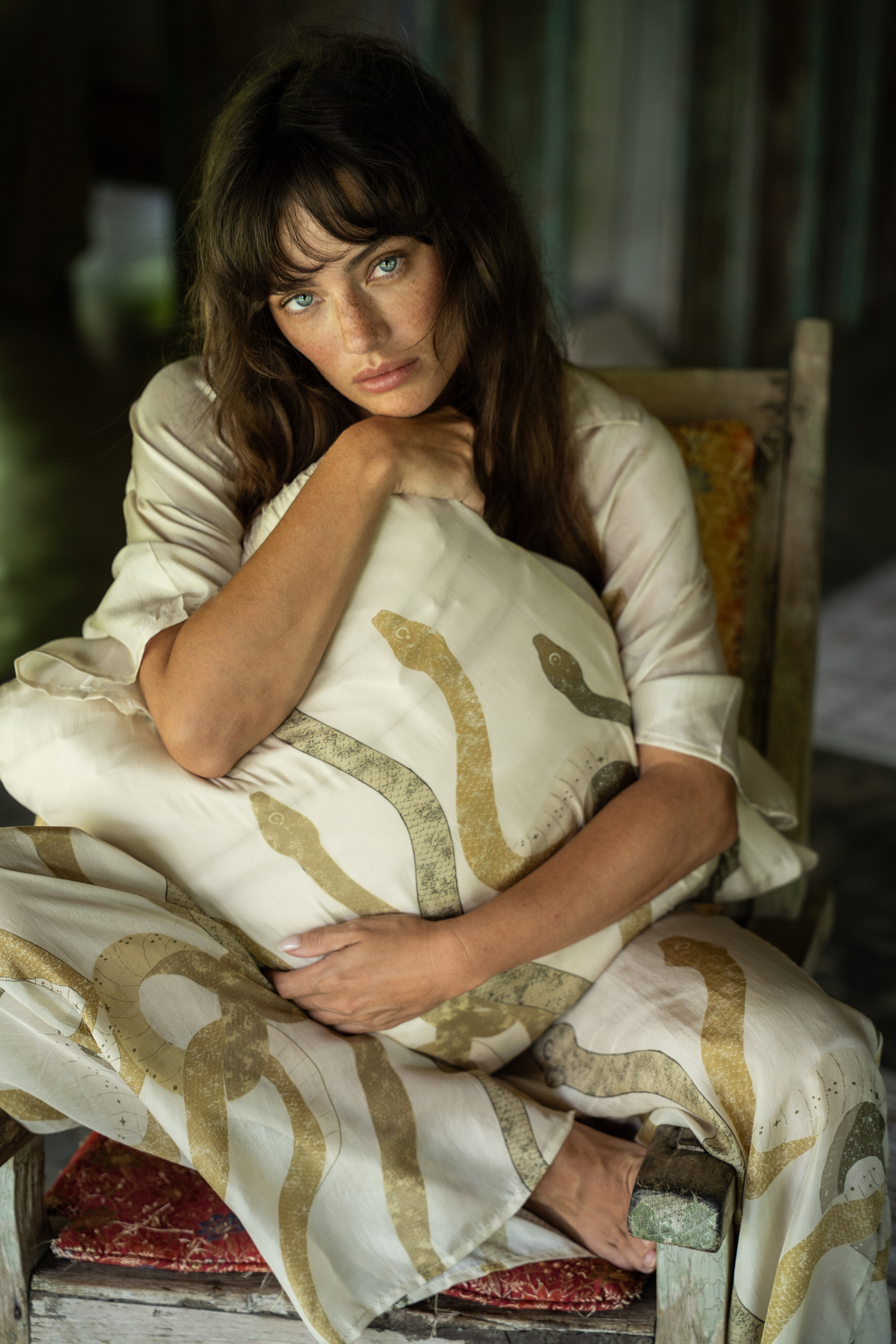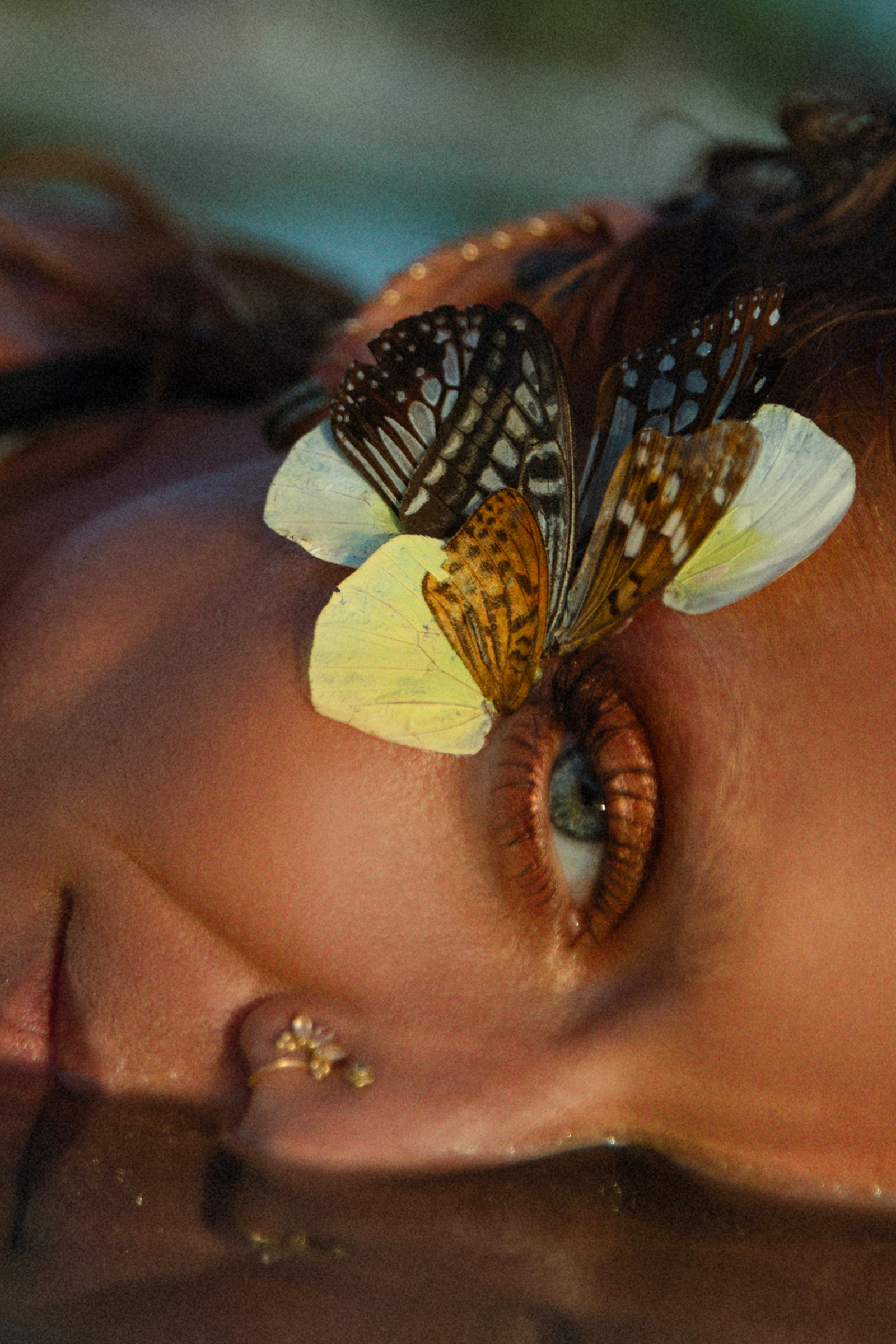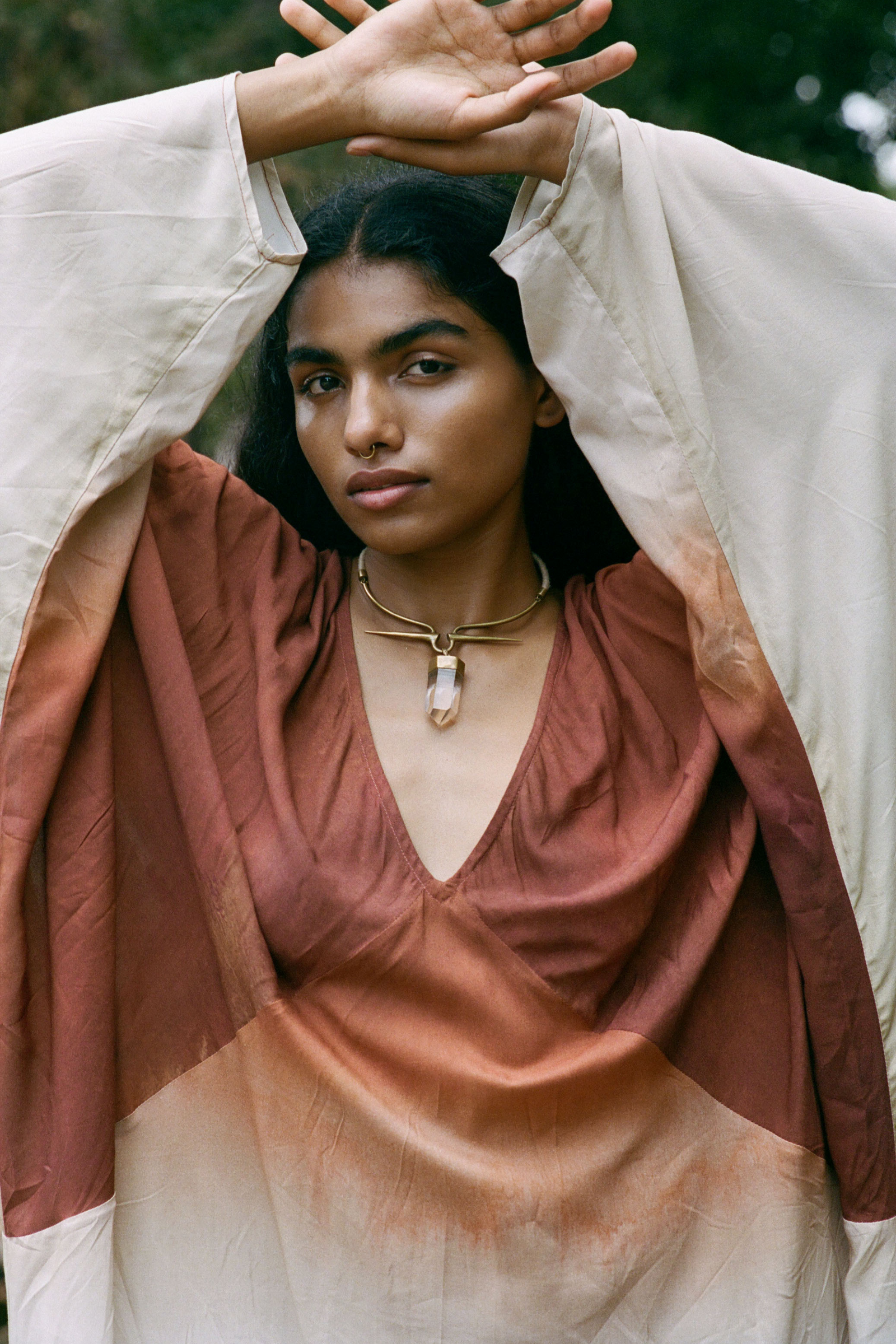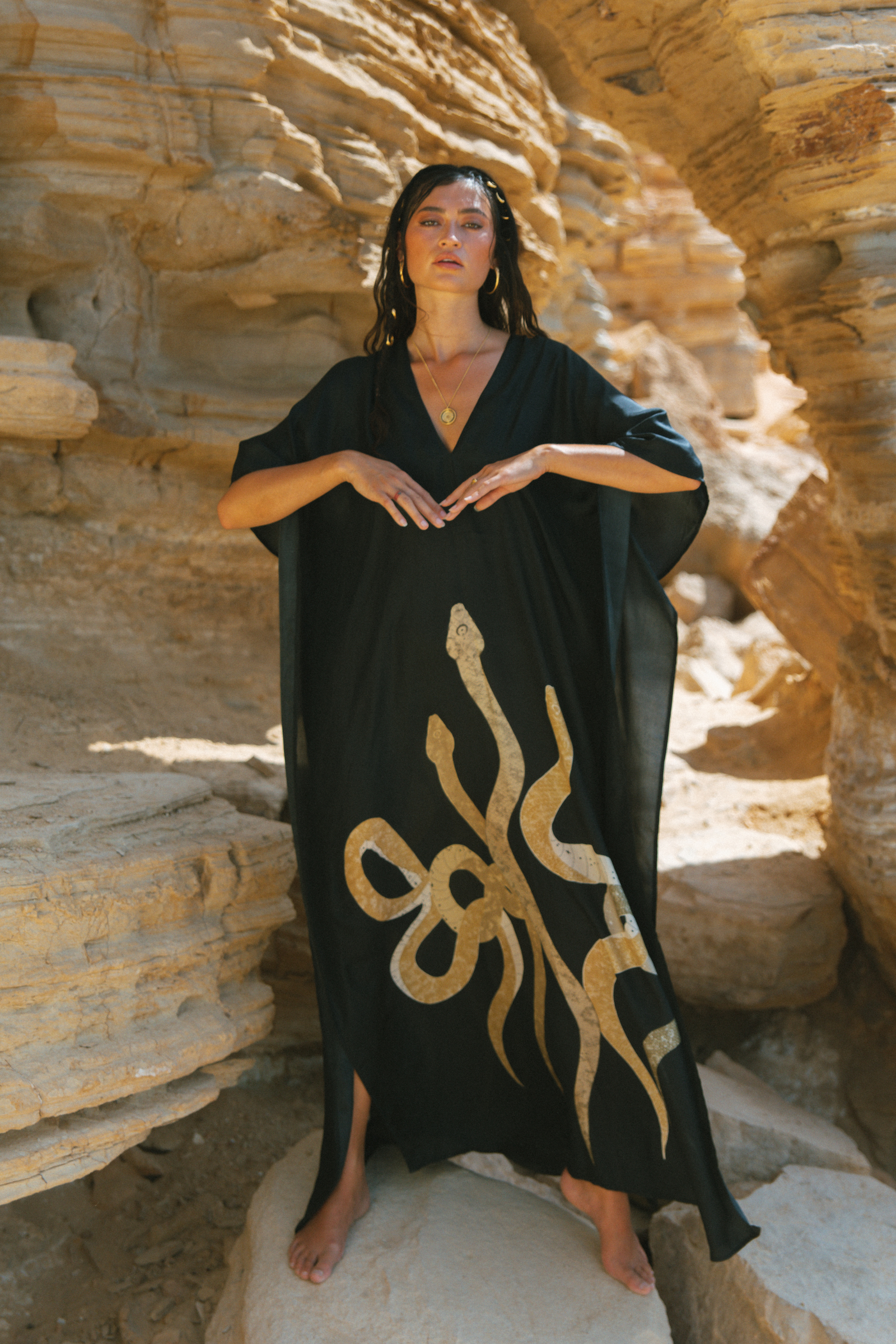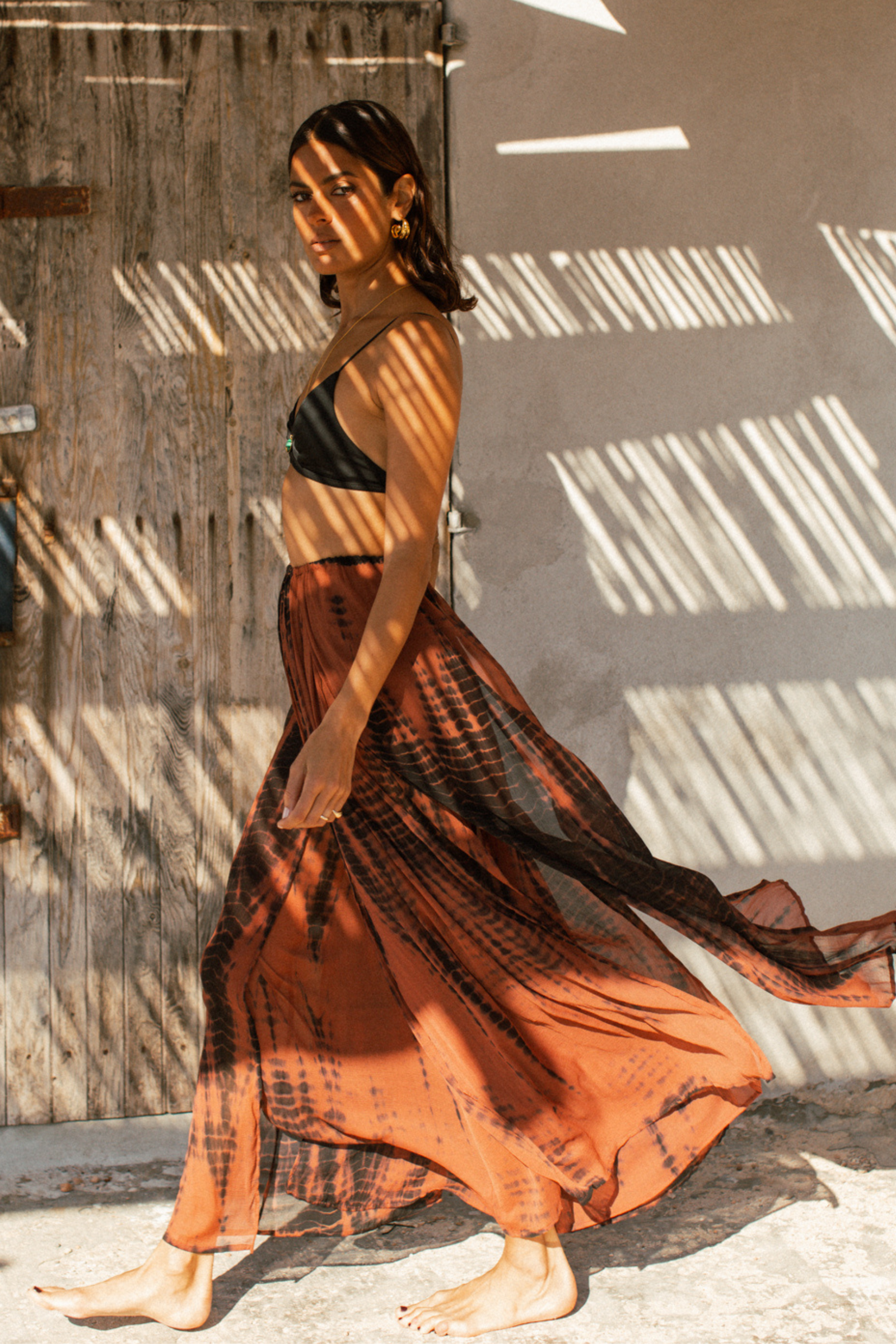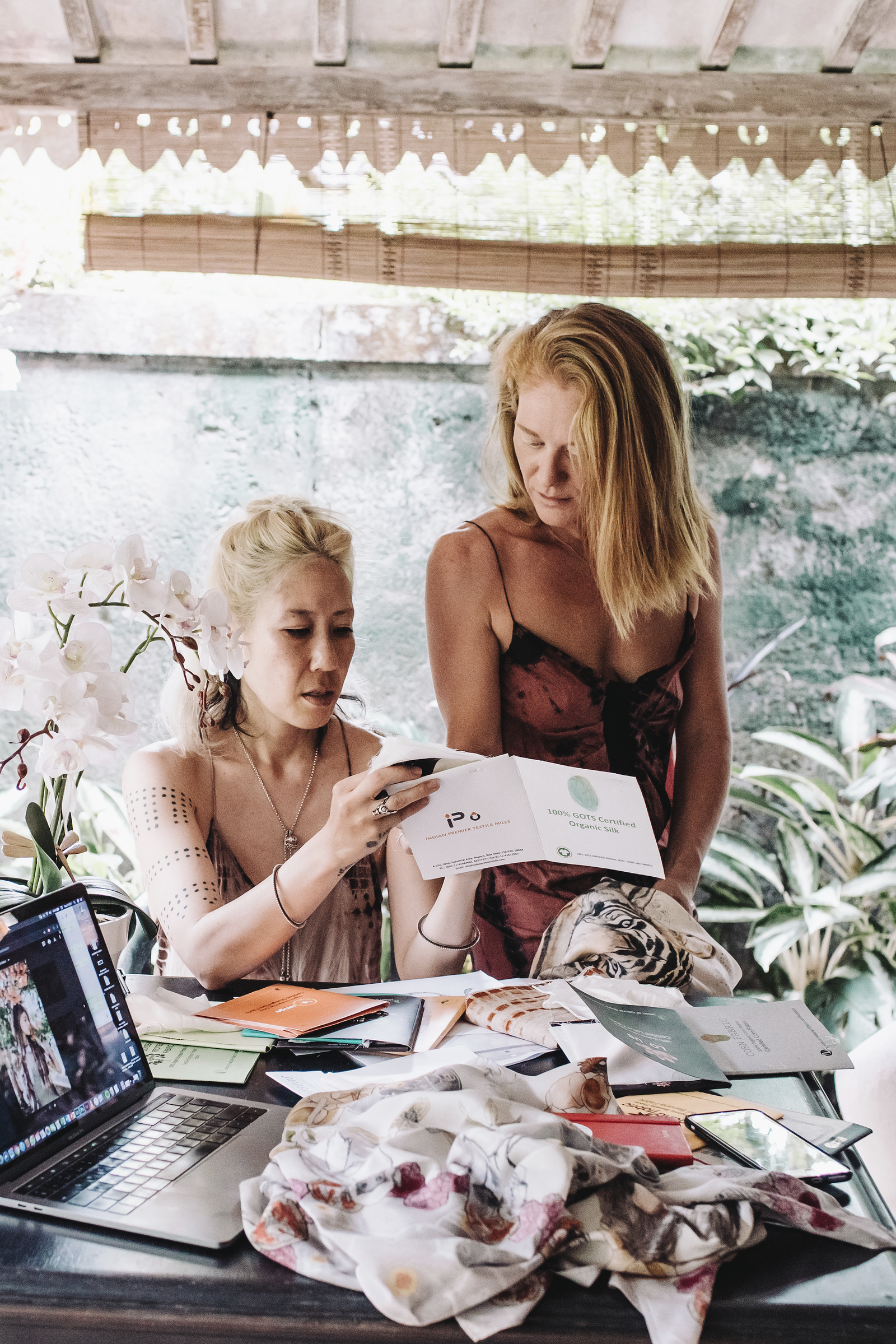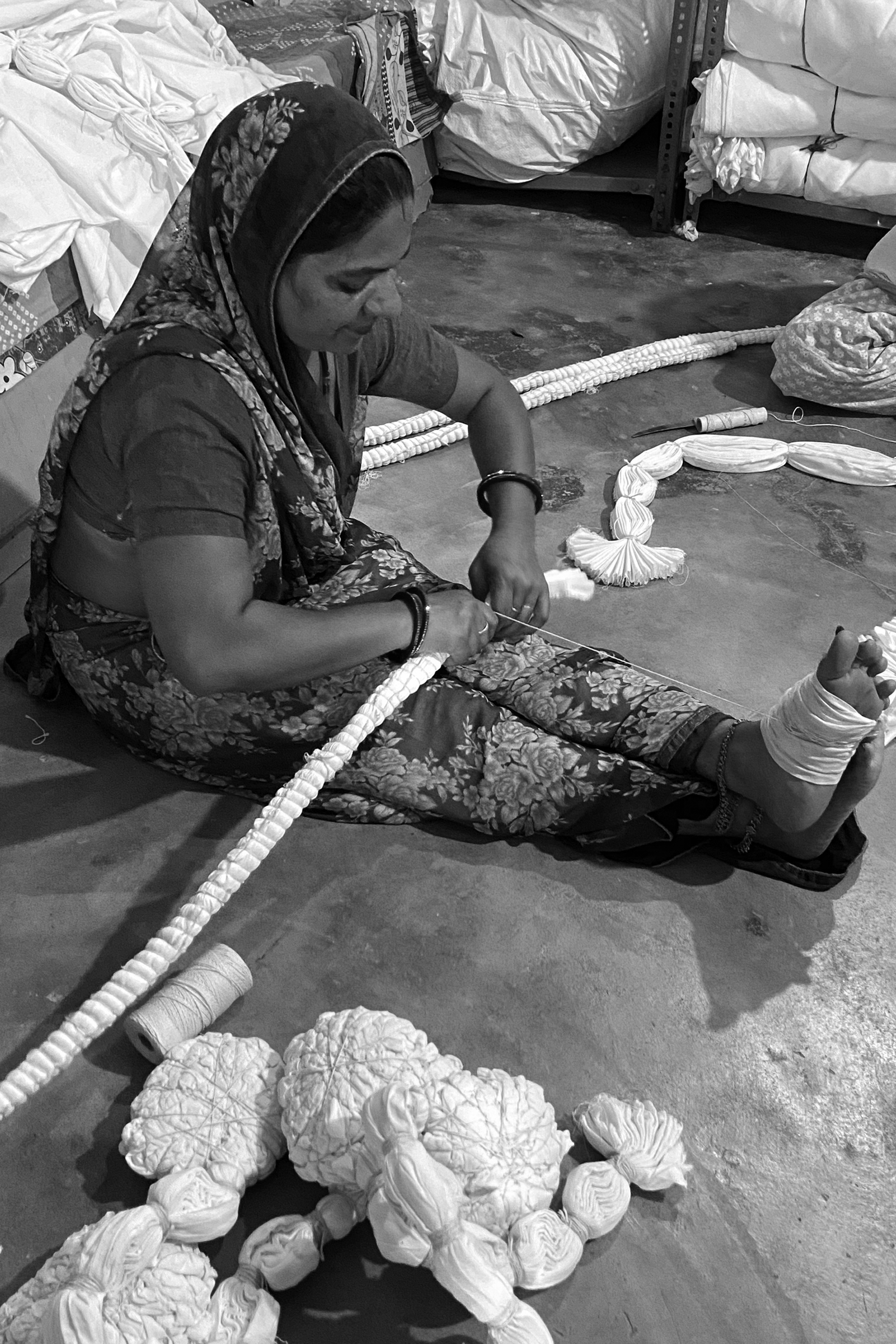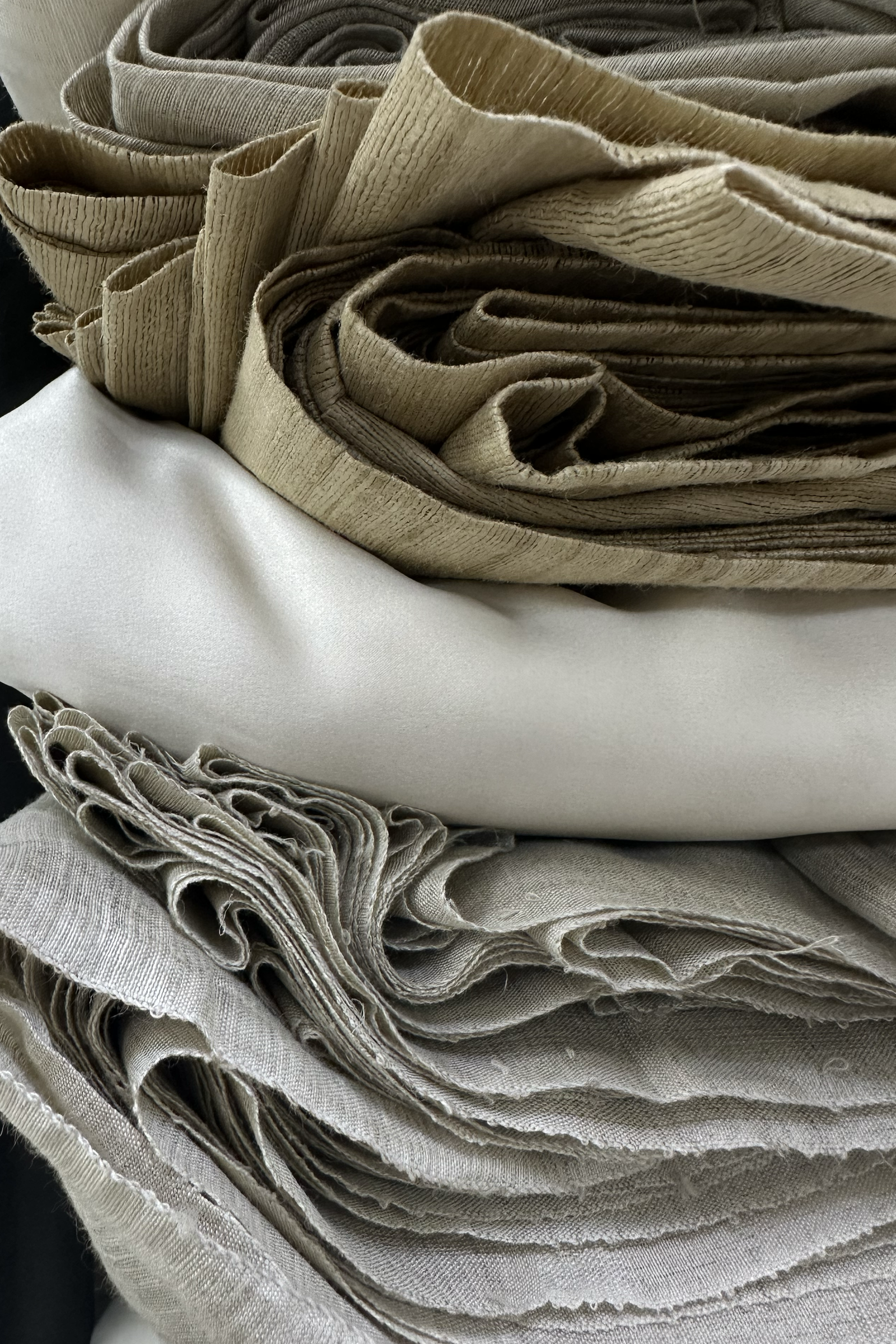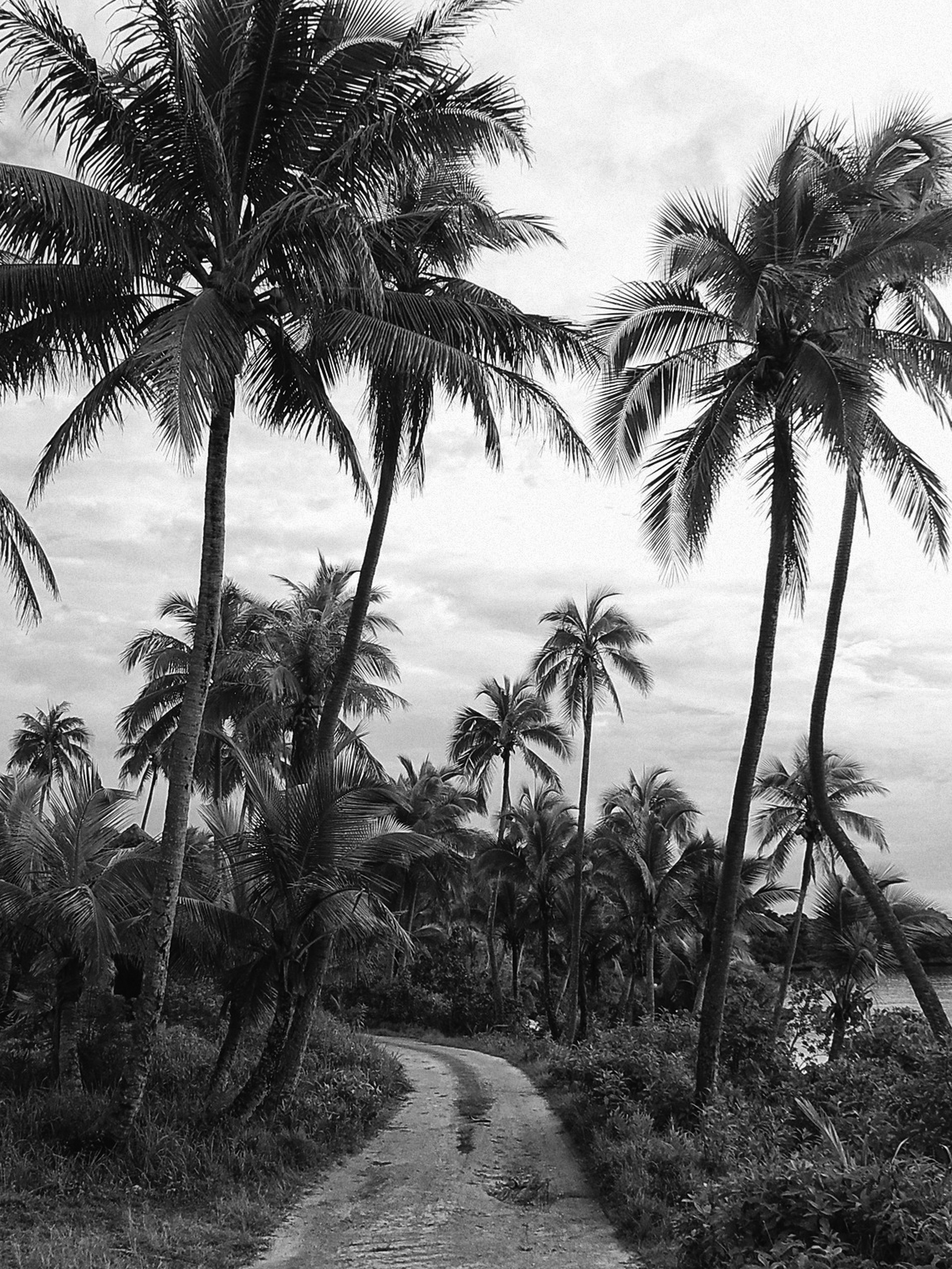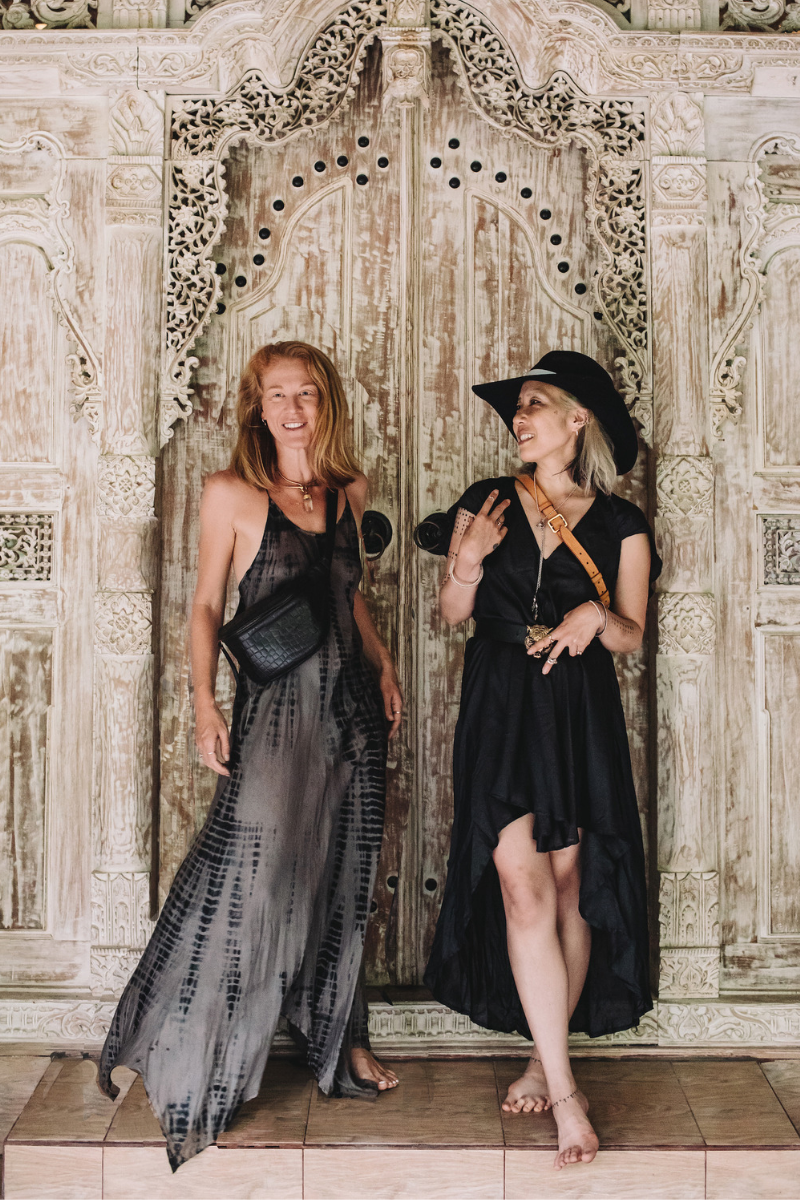Our Love and Care guide
-
Fresh AirSilks especially have a self cleaning quality and can simply be hung in the fresh air to freshen it up.
-
Dry CleaningFinding eco-friendly dry-cleaning locations can be tricky, as traditional options often use harsh chemicals harmful to both garments and the environment. Look for cleaners avoiding chemicals like perchloroethylene (perc) and hydrocarbons. Opt for those using silicone-based solvents, similar to ingredients in household products like shaving cream. Ensure your cleaner's methods are truly green and safe for your body and the environment.
If eco-friendly dry-cleaning isn't accessible, follow these care guidelines for best results. -
Hand WashBy hand washing your garment you will be saving huge amounts of waste water. We recommend using a small amount of eco-friendly detergent to ensure chemicals are not released into our oceans. Please note hand washing may result in slight colour running.
-
Machine WashIf your item has a machine wash care label inside we recommend you to use a cold wash. This will help to keep the colour and reduce your carbon footprint.
-
De-CreaseHanging your garments vertically can prevent creasing. Instead of an ironing we recommend you use a steamer. For an eco friendly steam hang your garment in the bathroom while you shower, the natural steam can do wonders to creased clothes.
-
Line DryWe recommend hanging your garment to dry. Do not use a machine dryer for any delicate fabrics you own. We recommend you do not hang your clothes in direct sunlight to save the colour.
OUR MATERIALS AND HOW TO CARE FOR THEM
-
Our Silk garments are 100% undergo meticulous hand-dyeing, resulting in pieces that are delicate yet resilient. With proper care, they can endure for years.
While hand washing remains an option, we highly recommend dry cleaning our Silk Products for optimal results. Please note that hand washing may result in slight color running.
Don't forget to simply hang your clothes in fresh air to freshen them up. - Our Satin Cupro, with its plant-based softness, closely mimics the luxurious feel of our 100% silk pieces but has a slightly denser texture. While we still suggest dry cleaning for best results, this fabric is more machine-wash friendly. If machine washing is necessary, we advise washing solo or with similar colors in a mesh wash bag, using a delicate wash cycle and gentle detergent.
- Crafted from beech trees, Hemp Modal stands out as one of the world's most sustainable fabrics. Its production demands significantly less water, promising longevity with proper care. For convenience, you can opt for machine-washing on a delicate setting, using cold water and a mesh bag for protection. Always separate light colors from dark. Alternatively, hand-washing your hemp pieces is a simple yet effective method.
-
Chiffon, known for its delicate nature, requires gentle handling to maintain its beauty. For best care, we strongly advise opting for eco-friendly dry-cleaning services. However, if you prefer hand washing, remember not to let the garment soak and avoid wringing out water forcefully. Never machine wash chiffon, especially without a protective mesh bag.
The Chiffon we are using is currently nylon, making it our only non biodegradable fabric, but we’ve been actively searching for a more eco friendly alternative, and will start using a plant based alternative by the end of this year. - Our linen-rayon blend combines the natural strength and breathability of linen with the soft, smooth drape of rayon, creating a fabric that is both comfortable and versatile. Linen is one of the most eco-friendly fibres, outperforming cotton in terms of water efficiency and reduced pesticide use. When blended with our responsibly made rayon - crafted from renewable wood pulp - it results in an earth-friendly fabric that not only looks beautiful but also adds structure and character to our garments. We recommend hand washing or using a gentle machine cycle with cold water, avoiding harsh detergents, and air drying to preserve the fabric's texture and longevity.
- An ancient material, that found origin in the Philippines is a fabric that is finally making waves in sustainable fashion. Crafted from otherwise discarded pith of the banana plant, this fibrous material creates a strong, breathable plant based alternative to silk, complete with signature lustrous shine. We recommend hand washing, and drying flat out of direct sunlight to maintain the fibre, and avoid fading.
-
Light as air, soft as a sigh - our silk-cotton blend is a fabric made for movement and feeling. The silk brings a delicate sheen and smoothness, while cotton grounds it with breathable ease and gentle strength.
Spun from natural fibres, this blend is as gentle on the Earth as it is on your skin. We source our materials with care, favouring low-impact production methods and responsible partners who share our love for the planet.
Dry Clean for best care, and if not, hand wash cold using a gentle detergent. Lay flat or hang to dry. Avoid heat, bleach, and harsh chemicals to keep the fabric, and its story, alive longer.


